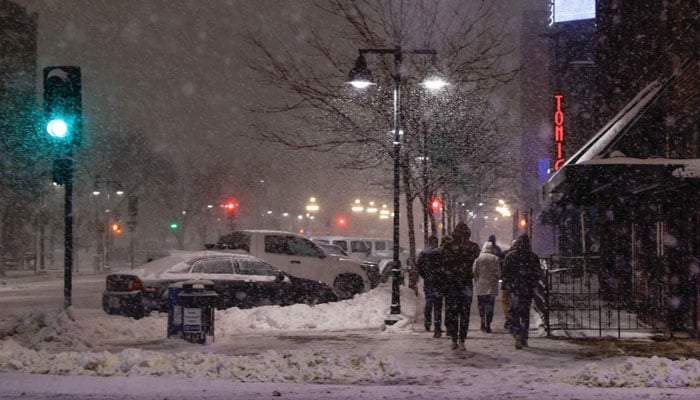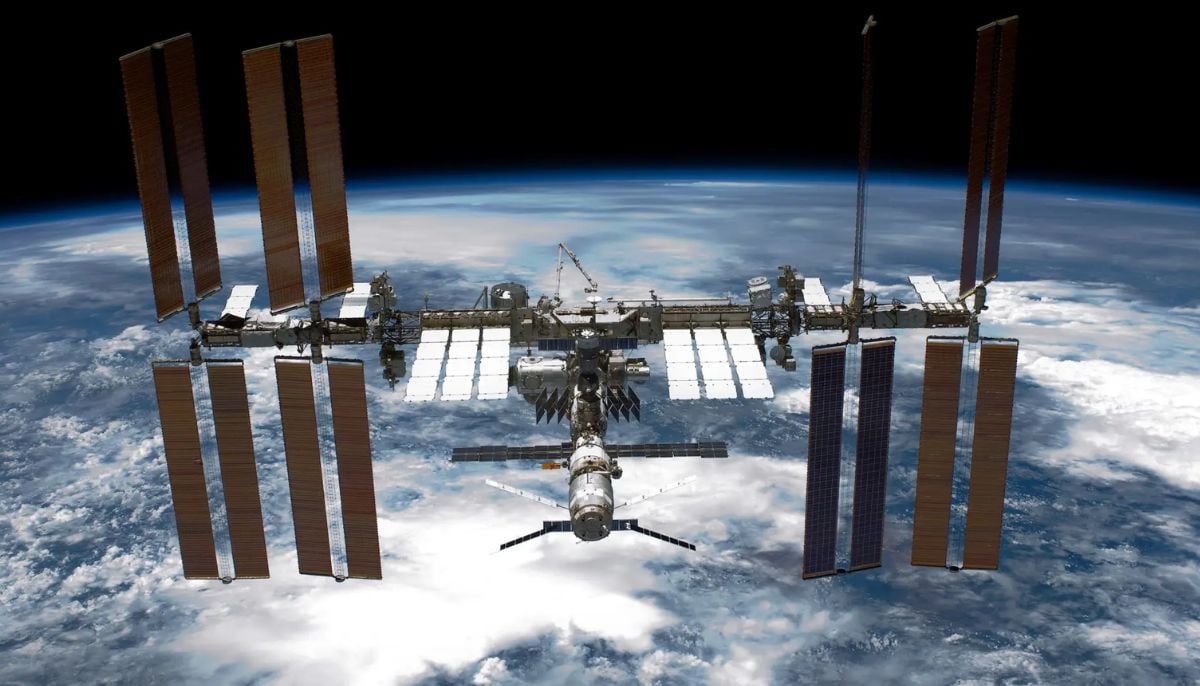Snowstorms sweep across US, grounding flights and freezing election campaigns
Blizzard's impact rippled through political landscape, grounding flights and prompting candidates to rethink their strategies just days before Iowa's crucial caucuses
Sweeping snowstorms have paralysed the United States, causing chaos in the Midwest and disrupting the presidential campaigns.
With tens of millions of Americans in the crosshairs of treacherous weather conditions, the Northwest and Midwest grappled with heavy snow, blinding winds, and flooding on the East Coast.
The impact rippled through the political landscape, grounding flights and prompting candidates to rethink their strategies just days before Iowa's crucial caucuses.
Airlines across the nation were forced to cancel or delay over 5,000 flights, leaving passengers stranded amid howling winds and blinding snow at Chicago's O'Hare International Airport. The storm's ferocity led to Republican presidential candidates in Iowa canceling events in the lead-up to the state's caucuses, the first step in the nomination process.
The blizzards, which descended on the upper Midwest with winds reaching up to 60 mph, prompted warnings from the National Weather Service (NWS) about the hazardous conditions. Meteorologist Zack Taylor cautioned against unnecessary travel, emphasising the perilous visibility on roads in Chicago.
In Iowa, where temperatures were expected to plummet below zero degrees Fahrenheit, the NWS highlighted the risks of frostbite and hypothermia.
As campaigns scrambled to adapt to the extreme weather, Republican candidate Nikki Haley, a former ambassador, opted for phone-in events, canceling all three planned rallies. The frigid conditions also cast doubt on caucus attendance, with some concerned citizens expressing worry about the impact on voter turnout.
Beyond the political arena, the snowstorms left more than 160,000 people without power in states such as Illinois, Texas, Wisconsin, Arkansas, and Tennessee. Air travel was severely disrupted, with over 1,500 flights canceled or delayed at O'Hare International Airport alone.
As the Midwest battled the blizzards, the threat extended to the East Coast, where millions faced the risk of flooding from heavy rains and snow. In the South, tornadoes and severe thunderstorms loomed over Mississippi, putting three million people on high alert.
The winter storm system, not confined to the Midwest, also struck the Pacific Northwest and the Central Rockies, promising heavy snowfall. In the wake of this icy onslaught, the nation finds itself grappling not just with the forces of nature but with the political fallout, as election campaigns are temporarily frozen in the relentless grip of winter.
-
Travis Kelce's mom Donna Kelce breaks silence on his retirement plans
-
Hailey Bieber reveals KEY to balancing motherhood with career
-
Hillary Clinton's Munich train video sparks conspiracy theories
-
Woman jailed over false 'crime in space' claim against NASA astronaut
-
Columbia university sacks staff over Epstein partner's ‘backdoor’ admission
-
Ohio daycare worker 'stole $150k in payroll scam', nearly bankrupting nursery
-
Michelle Yeoh gets honest about 'struggle' of Asian representation in Hollywood
-
US, China held anti-narcotics, intelligence meeting: State media reports












